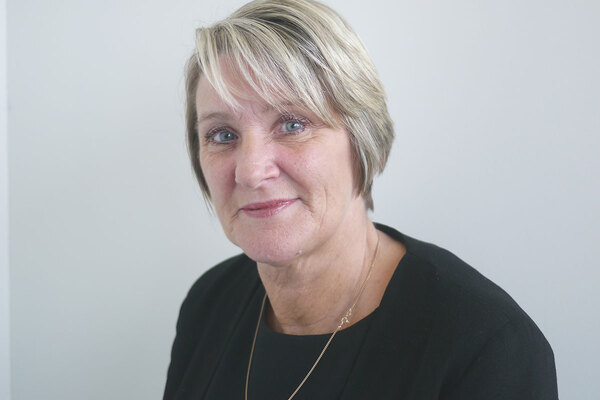RBH deemed non-compliant after regulator says it provided ‘inadequate information’ following Awaab Ishak’s death
The housing association whose property led to the death of Awaab Ishak has been deemed non-compliant for governance by the Regulator of Social Housing (RSH).
The regulator downgraded Rochdale Boroughwide Housing (RBH) from G1 to G3 after it found “significant failings” in the way the organisation deals with damp and mould.
RBH failed to survey the estate where Awaab lived for nearly two years after his death – and when it did, almost 80% of the homes were found to have some level of damp and mould.
The regulator also found RBH in breach of the Home Standard and parts of the Tenant Involvement and Empowerment Standard, which led to “actual and potential serious detriment” to tenants.
Awaab Ishak had just turned two years old when he died from prolonged exposure to mould in an RBH flat in December 2020.
His family had been complaining about the state of their home in Rochdale for years.
The coroner who made the ruling concluded the inquest into his death this month.
The conclusion also raised issues such as poor repairs, maintenance and tenant treatment, and poor treatment because of the tenants’ ethnicity.
Two years on from Awaab’s death, the regulator has downgraded RBH’s governance from G1 – the grade it gave it last year – to G3, which means it is now non-compliant.
RBH self-referred to the regulator a month after Awaab died.
But according to the RSH, “wider failings” at RBH “meant that it gave the regulator inadequate information about damp and mould shortly after Awaab’s death”.
“The widespread issues in its homes which it later found severely undermine RBH’s credibility and expose significant failings in the way it treats damp and mould,” it said.
The regulator said it lacks assurance that the social landlord has an effective risk management and internal controls framework, and a “board with sufficient capacity to ensure compliance with the regulatory standards”.
According to the regulatory notice, Awaab’s death “led to apparent action by RBH” but it “missed opportunities over a two-year period to act in a timely, effective and proactive manner to strengthen its risk controls and assurance relating to damp and mould hazard as more information came to light”.
“RBH’s board failed to take appropriate steps to ensure the integrity of its data relating to the condition of its properties which adversely impacted its decision-making and scrutiny of the risks,” it said.
When RBH surveyed the Freehold estate – where Awaab and his family lived – in August 2022, it found that almost 80% of homes had damp and mould issues of varying severity.
The regulator concluded: “The results and timing of the survey severely undermines the credibility of the assurance upon which RBH’s board had relied.
“As a result of RBH’s failure to take sufficiently swift and robust action to address material risks relating to damp and mould conditions in its properties, the regulator lacks assurance that RBH’s governance arrangements ensure that the provider is accountable to tenants, the regulator and relevant stakeholders, and that they safeguard the reputation of the sector.”
It said RBH’s board failed to act with an “appropriate degree of skill, diligence, effectiveness, prudence and foresight in response to the most serious of consequences”.
The regulator found that although RBH’s data on its repairs performance did not suggest “any material concerns”, the recent state of the homes on the Freehold estate “demonstrate a wider concern about RBH’s repairs and maintenance service that is not reflected in the data”.
As a result, the regulator found it in breach of the Home Standard because it does not have assurance that the issues on the estate are not replicated in any other RBH homes.
RBH also breached the Home Standard over issues with its IT system and “poor communication” across the organisation.
The association used numerous different IT systems and not everyone who had contact with the family had access to the same information.
The regulator concluded that RBH also breached the Home Standard because its repairs and maintenance service did not respond to the needs of Awaab and his family, as well as a significant number of other tenants on the Freehold estate.
The regulator found RBH in breach of the Tenant Involvement and Empowerment Standard after it failed to hear from tenants about the state of their homes on the estate.
“And therefore it has failed to communicate in a way that is appropriate to the diverse needs of tenants,” it said.
The regulator said it is “not clear why RBH was unaware of these problems given that they are widespread across the properties on the Freehold estate”.
RBH previously admitted that it made assumptions about Awaab’s family’s lifestyle.
“This affected its decisions about how damp and mould at the property were dealt with and, as a consequence, it did not act in line with part 1.3 of the Tenant Involvement and Empowerment Standard which requires providers to treat tenants with fairness and respect,” the regulator found.
It said it lacks assurance that the “attitude towards, and assumptions about, Awaab’s family are not a wider issue with the potential to affect other RBH tenants”.
Fiona MacGregor, chief executive of the RSH, said its investigation “reveals significant failures” in the way RBH manages damp and mould in its homes, resulting in harm to tenants.
“The tragic death of Awaab Ishak should have led to action to establish wider risks, but RBH failed to respond quickly or effectively.
“This is unacceptable. RBH needs to address the issues we have found and we will take further action if it fails to do so,” she said.
Ms MacGregor added that the judgement “sends a clear message to social landlords that they must deal with damp and mould as the serious hazards that they are, treat tenants with respect, and take their concerns seriously”.
Ms MacGregor said that councils and housing associations must provide assurance that they have a “clear understanding and strong grip on damp and mould issues in their homes” and are addressing risks to tenants’ and residents’ health.
The news comes after RBH’s new interim chief executive, Yvonne Arrowsmith, made a call to meet as many tenants as possible to hear how the organisation can improve.
She said it is “extremely important” that she understands the condition of RBH’s homes.
The landlord owns and manages more than 12,000 properties, while the neighbourhoods team has 20 patches.
Ms Arrowsmith took over as interim boss on Monday, taking the reins from Gareth Swarbrick, who was recently fired.
She said she is planning on visiting neighbourhoods to learn from residents what it is like to live in an RBH home. Tenants can also attend drop-in sessions, taking place this week and next.
Ms Arrowsmith said: “Our entire team is bound by our commitment to supporting our tenants. We want to make sure you are listened to when you contact us, and that you feel you are treated with respect.
“We also want to respond to any of your concerns promptly, so are currently reviewing our complaints policy to make sure it is focused on quickly putting things right where we have made mistakes.”
Response from RBH
A spokesperson for RBH said: “Everyone at RBH is driven by a desire to provide safe and comfortable homes we are proud of. Yet, mistakes have been made. We failed Awaab, his family and the community we serve.
“We would like to once again express our deepest sympathies for the tragic loss of Awaab, and we will forever remain sorry to his family.
“Today’s announcement by the regulator recognises that failure and the mistakes we have made. We accept this judgement and we are already working closely alongside the regulator to address their concerns and meet their expectations.
“We now have a long road ahead of us to regain the trust and confidence of current and future tenants, Rochdale Council, the Rochdale community, and the regulator.
“This journey has already begun. Our new interim chief executive, Yvonne Arrowsmith, has a proven track record of transforming housing providers, and has made it a priority to listen and respond to tenant feedback.
“A new damp and mould taskforce has significantly accelerated remedial work. New translation tools are helping us better communicate with tenants. A £1.2m programme is under way to improve ventilation in every home on the Freehold estate.
“Changes to the membership of the board have also started, and we can confirm that recruitment for new members, including a new chair, will commence in January 2023.
“The board remains fully committed to RBH and to the safety and well-being of our tenants. Stability is crucial at this time, and therefore the current board will remain in post whilst recruitment is under way so that an orderly transition and handover can take place with the new appointees in due course.
“To further support the governance of the organisation in this interim period, we are currently recruiting special advisors on asset management and tenant services, as well as a new audit chair.
“All new appointees to the board will be approved by our representative body, and the body will also be directly involved in the interview process, ensuring tenant voice is at the heart of these decisions.
“Awaab’s death is a defining moment for RBH – but also for the wider housing sector. Whilst it should never have taken a tragedy for change to happen, ‘Awaab’s law’ must be introduced to ensure there is lasting change.
“There are hard lessons to learn: process must never get in the way of people; tenant voice must always be valued; maintenance and property renewal should be prioritised; tenant safety must always be the first and foremost consideration.
“As we move forward, our priority is to continue delivering on our improvement plan as quickly as possible so that our homes are safe and comfortable. Under renewed leadership, RBH is determined to rebuild as an effective, responsive, and tenant-focused organisation that has mutuality at its heart.”
Sign up for our regulation and legal newsletter
Already have an account? Click here to manage your newsletters











